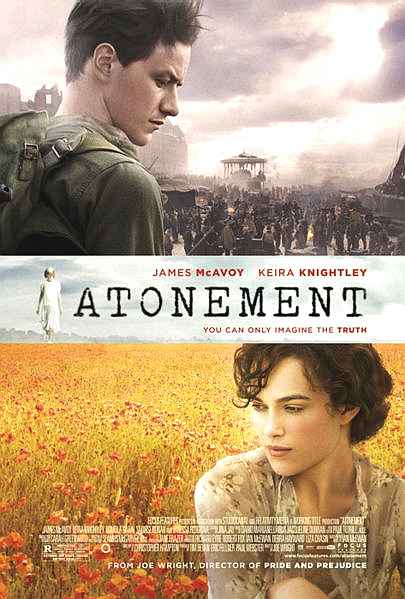No, sadly for all of you Nicholas Cage fans out there, I am not referring to the acclaimed 2002 screenplay, but instead to the topic of adaptation itself. I do full-heartedly apologize if you fell victim to a Google keyword mishap, and wish you all the best as you continue your quest across the world-wide web.
In the case of this blog however, I will be focusing on the adaptation of literature for film; and will be looking specifically at the adaptation of Ian McEwan's award winning novel Atonement. The film which shares the same title as the novel, stars James McEvoy and Keira Knightly; and is directed by Joe Wright. The film was released in 2007 to much acclaim; including several Academy Award nominations.
The statement "that was a good movie, but it does not do the book justice" is an all to familiar sentiment to most of us, and often forces us to consider if it is even beneficial to dissect powerful literature for the purpose of film. There is something special and unique about the experience of cracking open the crisp pages of a novel and settling down in a quiet place, to open your mind and reflect on the ideas within.
By adapting literary works such as Atonement and by introducing the limitations of film, do we run the risk of of jeopardizing the authors vision, and therefore our own? Or, is it possible that these so-called "limitations" bring about a new form of literature? Could it be that the camera is only an extension of the pen, and therefore can be given merit in the world of storytelling?
These are all questions which have plagued readers, directors and authors alike since the inception of film, and are surely ones which will continue to do so well into the future. Over the course of my next few blog entries, we will delve into the connections which can be drawn between these mediums, and will focus strongly on answering the above questions. We will examine aspects of this film such as setting, costume design, cinematography and casting; in the context of literary adaptation, and in-turn hope to learn more about the struggles and triumphs of the adaptation of strong, powerful, literary works, such as Atonement.
Connect with these:


No comments:
Post a Comment